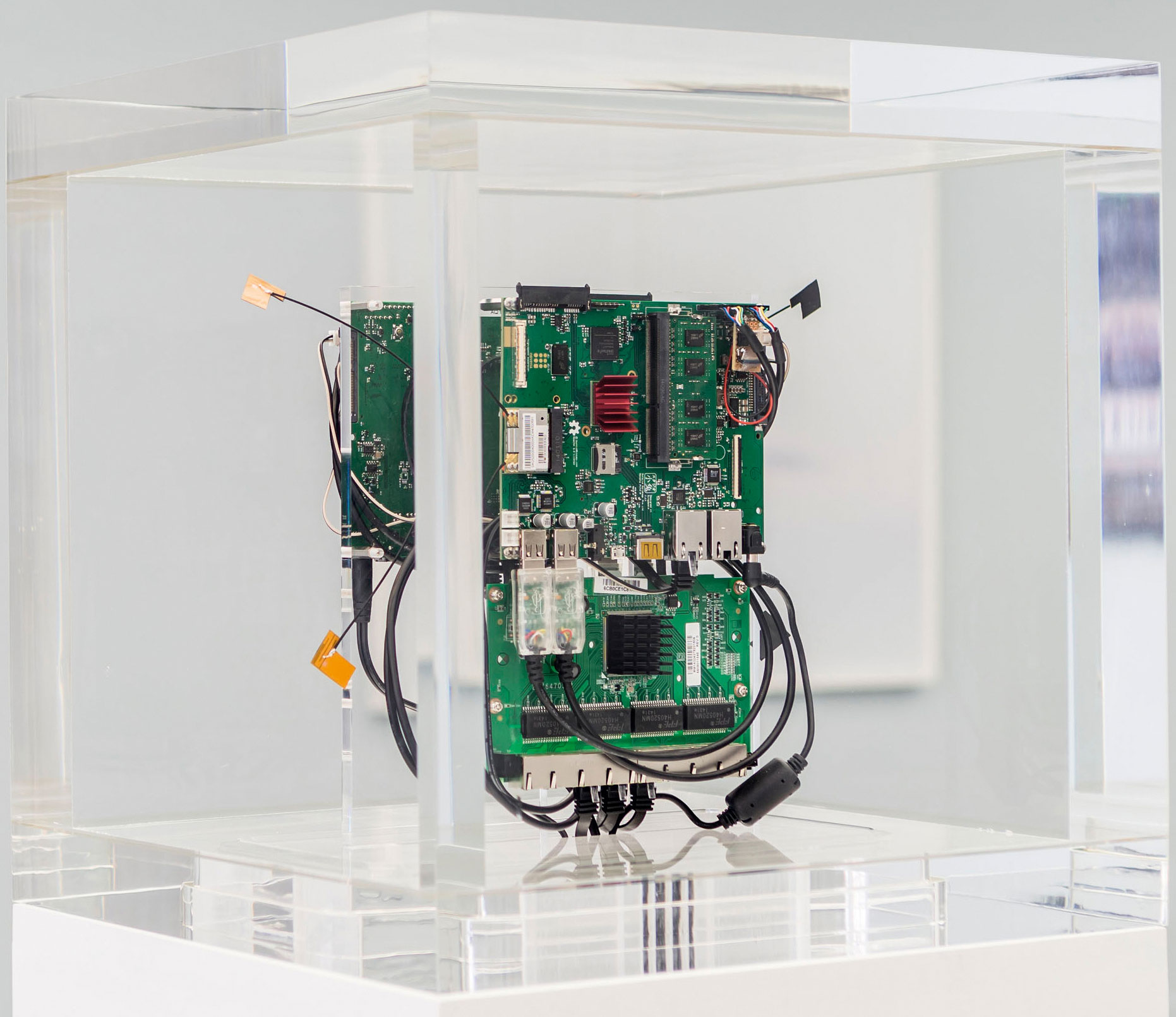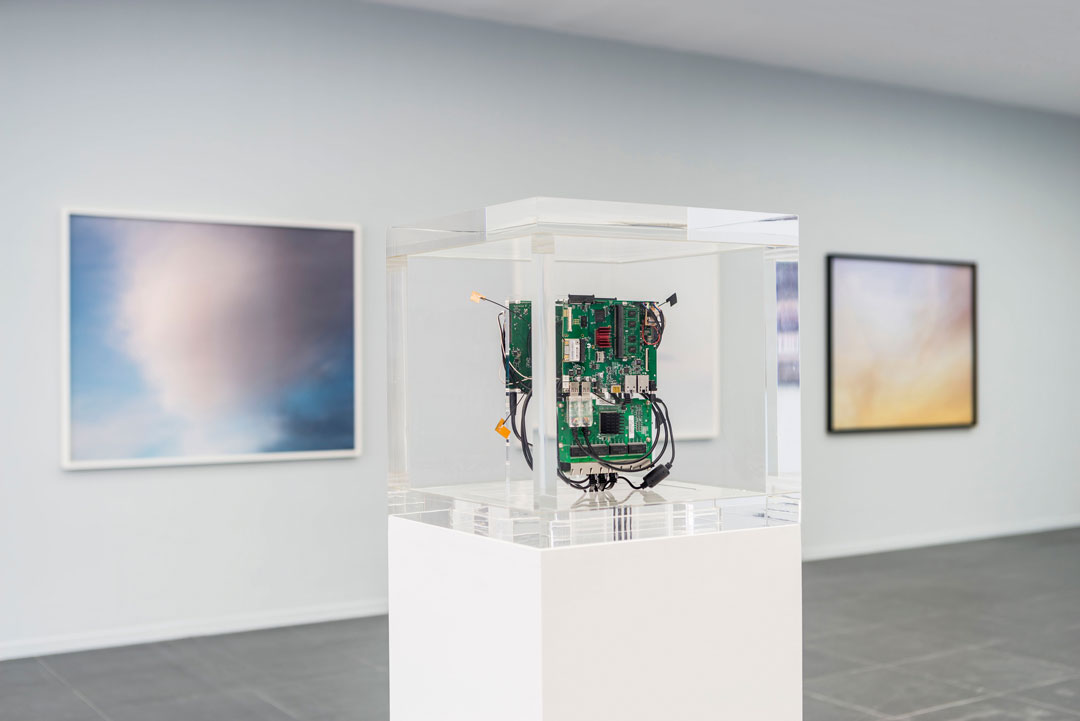
Trevor Paglen’s surveillance-free safe space
The artist’s Autonomy Cube lets gallery goers go online anonymously
Trevor Paglen’s 2015 artwork, the Autonomy Cube, isn’t the kind of art that falls prey to the ‘my kid could do that’ school of layman’s criticism. Instead, it’s the kind of creation an IT professional might struggle to whip up in an afternoon.
“The Autonomy Cube piece creates an open-Wi-Fi network in its host institution that anyone can use for free,” explains Trevor Paglen in our new Contemporary Artist Series book. However, Paglen’s Autonomy Cube is a bit more than a simple, open, Wi-Fi router.
“It then takes all of that Wi-Fi traffic and sends it over the Tor network, effectively anonymizing the web traffic of everyone using it,” he explains. “It also does something else, which is that it turns the host institution’s internet connection into a Tor relay, so it lets people all over the world connect to the museum and anonymize their own internet traffic using the museum’s infrastructure.”

None of this is groundbreaking technology; Tor technology has been freely available for over 15 years. However, by offering anonymous surfing in a public space such as a gallery or a museum, Paglen raises questions about the inadequate levels of privacy we all willingly put up with.
“We’re living at a moment when the police and capital are appropriating ever smaller and more intimate details of everyday life and putting them to use for either surveillance or financialization,” he says. “The internet is the most obvious example, when we look at things like National Security Agency (NSA) surveillance, the ‘snoopers’ charter’ in the UK and the financialization of personal information in the form of Google searches, Facebook posts, Fitbit metrics and the like (which the police of course also have access to). Autonomy Cube is a piece that’s first of all meant to point that out – to point out the fact that the idea of using the internet to look up information in a surveillance-free environment seems odd.”

“It’s gotten to the point where the idea of not tracking how people use communications devices, or creating spaces that are free from metadata collection and behaviour tracking, seems almost inconceivable to anyone who runs any institution,” he says. “That shows you the degree to which companies in the business of surveillance capitalism have completely normalized what they do.”

For more high-tech, highly critical works, consider buying a copy of our new Trevor Paglen book here.